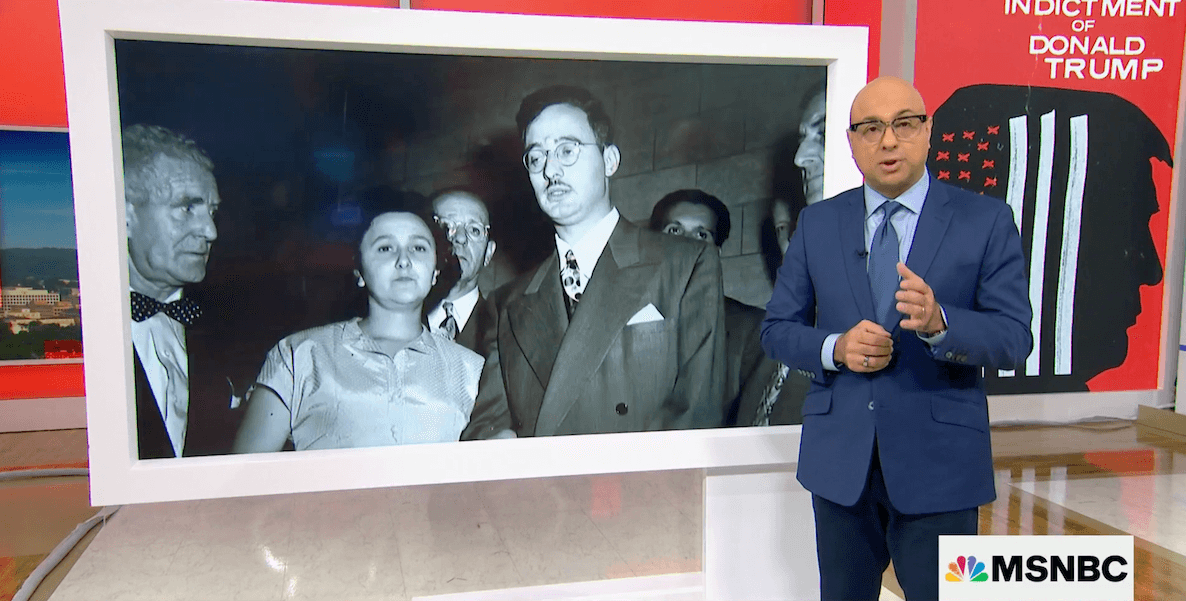The Espionage Act was established in 1917, two months after the beginning of World War I. So, it’s not new, but it is often misunderstood. For more than a century, the U.S. government has used the Espionage Act to prosecute both dangerous spying, such as attempts to leak sensitive defense information like nuclear codes (as with Julius and Ethel Rosenberg, pictured), and to prosecute legitimate free speech, such as protests to war, Ali Velshi explains.
Today, the Act is mostly used to go after the first category, to stop and to punish spies and leakers, especially when they jeopardized secret defense information.
Donald Trump‘s federal indictment is states that he stored information about U.S. “nuclear programs, potential vulnerabilities of the United States and of its allies to military attack and plans for possible retaliation in response to a foreign attack” in storage rooms, a ballroom, and a bathroom in his Florida home and country club, Mar-a-Lago. Trump’s alleged crimes come under section 793 of the Espionage Act, which “prohibits the gathering, transmitting, or losing of defense information and is punishable by up to 10 years in prison,” says Velshi.
In other words, the former president was not exercising free speech, and not actively spying. He was simply keeping highly sensitive documents in places where Palm Beach partyers very likely have … partied.
LISTEN: ALI VELSHI ON THE HISTORY AND PRESENT OF THE ESPIONAGE ACT
WATCH: ALI ON THE ESPIONAGE ACT
![]() MORE FROM MSNBC’S ALI VELSHI
MORE FROM MSNBC’S ALI VELSHI



